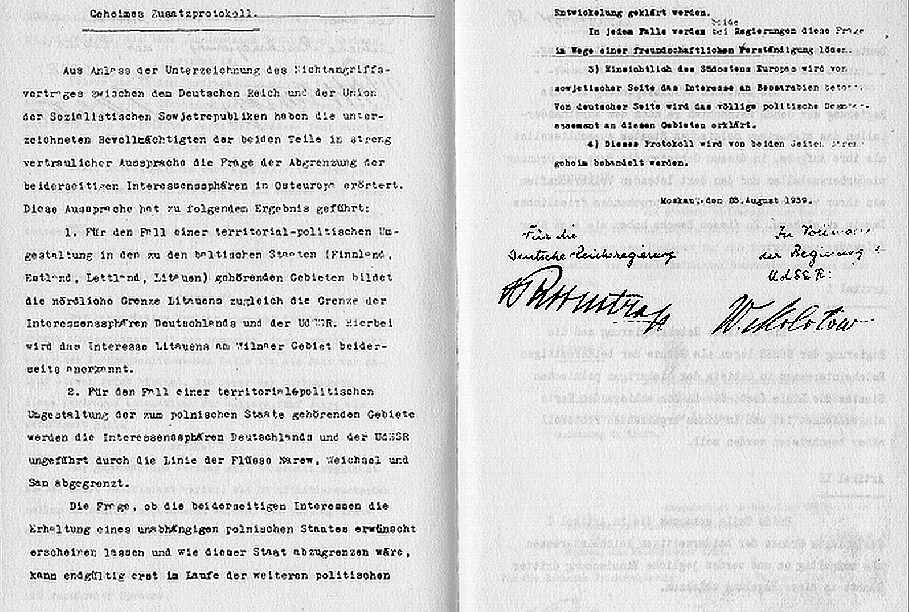The statement was signed by Minister of Foreign Affairs of Estonia Urmas Reinsalu, Minister of Foreign Affairs of Latvia Edgars Rinkēvičs, Minister of Foreign Affairs of Lithuania Linas Linkevičius, Minister of Foreign Affairs of Poland Jacek Czaputowicz and Minister of Foreign Affairs of Romania Ramona-Nicole Mănescu.
The text is reproduced in full below:
August 23 will mark 80 years since the signing of the Molotov-Ribbentrop Pact between the Soviet Union and Nazi Germany that sparked World War II and doomed half of Europe to decades of misery. The Pact contained the secret protocol which effectively carved up Eastern Europe into spheres of influence.
This is why on this day proclaimed by the European Parliament as a European Day of Remembrance for Victims of Totalitarian Regimes we remember all those whose deaths and broken lives were a consequence of the crimes perpetrated under the ideology of Nazism and Stalinism.
Pain and injustice will never fall into oblivion. We will remember.
Remembering and commemorating past horrors gives us the knowledge and strength to reject those who seek to revive these ideologies or who seek to exonerate these ideologies of their crimes and culpability. The memory of the victims compels us to promote historical justice by continuing research and raising public awareness of the totalitarian legacy on the European continent.
The basis for sustainable conciliation and building a common future is justice and objective truth. Victims of totalitarian crimes have a right to justice. Unfortunately, the practice of investigating and prosecuting the crimes of totalitarian regimes has been insufficient and inconsistent across countries.
We call upon the governments of all European countries to provide both moral and material support to the ongoing historical investigation of the totalitarian regimes. By acting in a concerted manner, we can counter more effectively disinformation campaigns and attempts to manipulate historical facts.
We must stand together against totalitarianism. A clear and firm position of the international community will pave the way to further reconciliation.
We are confident that today's Europe is a safe place for all peoples, and ready to resolutely resist any kind of injustice. We believe that Europeans will never tolerate totalitarianism or genocide against any people.
Our countries have been reborn as free and democratic nations after decades of totalitarian rule. Thirty years ago, our nations started the democratic transformations that eventually made us equal and vigorous members of the European Union. Our countries are determined to continue working with our partners in Europe and around the world so that the horrors of the past never re-emerge.
For more background on the Molotov-Ribbentrop pact and its ramifications, the Ministry of Foreign Affairs has this concise fact sheet available. You can also read the full text of the "non-aggression pact" at this website dedicated to August 23 as European Day of Remembrance for Victims of Stalinism and Nazism.
80 years ago two greatest criminals of all times Stalin & Hitler made a deal (also known as #MolotovRibbentrop pact) that triggered #WorldWar2 bringing death & suffering to millions, for ?? it meant decades of Soviet & Nazi occupations, we must never forget this lesson of history pic.twitter.com/2vVDNZFc60
— Edgars Rinkēvičs (@edgarsrinkevics) August 23, 2019




























